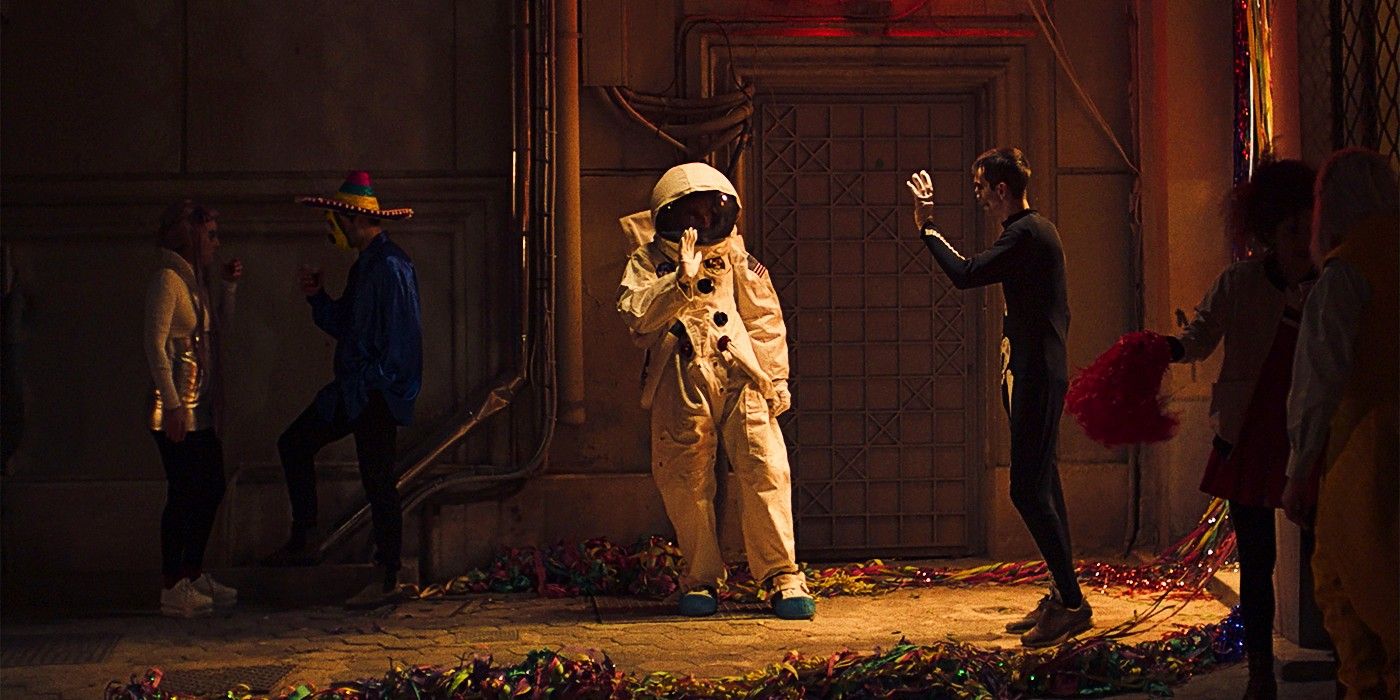At a time when memory and identity seem inextricably linked to social media (and the photographs along with it), a collective consciousness has been built around the outward appearance of the self. Apples asks what happens when the idea of the self is erased, when nothing is left and we have to build a new identity in an era where the very idea of it could become lost within the collective. The Greek film tackles memory and identity with a quiet rumination on what it means to be alive when those things are so susceptible to being lost. An effective portrait of ambiguity accompanied by a stellar lead performance, Apples' contemplative nature hides nuanced questions about the modern age underneath its placid surface.
Apples follows Aris (Aris Servetalis) a man who, at the beginning of the film, wakes up with no memory of who he is and no identification to give him an idea of who he could have been. There's a pandemic sweeping the country (and quite possibly the world), one where people fall asleep and wake up with no memories. Sometimes their loved ones find them and set out to restore some semblance of identity, but those who go unclaimed are left to drift in a world populated with other amnesiacs and advertisements for a medicine called Memory+. In an attempt to rebuild some sort of life, Aris joins the "Learning How to Live" program where he will be given a place to live and instructions on how to, essentially, build a new identity.
These instructions come in the form of recordings that tell Aris to do something (what may be considered a quintessential life experience) and document it via Polaroid camera. These experiences make up a new identity for Aris and these memories, documented in a scrapbook, are meant to stand in for the ones that are now missing. It's an interesting conceit, one handled with nuance and care. Aris is game for whatever the doctors throw his way, especially when it involves doing it with Anna (Sofia Georgovassili), a woman who is also part of the program. Together, they build a sort of collective memory, a book of shared (and unshared) experiences that may prepare them to live on their own one day.
Aris is childlike in his innocence, a hesitant but willful participant in these strange circumstances. Through these experiences, Apples is subtly asking questions about the things that make up who we are. Is it these prescribed experiences, like the task where Aris is told to go to a strip club and take a photo with one of the dancers, robotic-like in his interactions with the woman? Or is it in the spontaneity of everyday life, like when he and Anna struggle to find their car and accidentally set off the alarm of another? Aris and Anna run away from the vehicle with glee, happier than they looked while doing any of the tasks that were required of them.
Most of the time, Aris is almost a cipher; this feels intentional, as if viewers are supposed to imprint themselves onto him, imagining what it would be like to be in his situation. Apples also makes the audience question the very meaning of loss. After all, what did someone really lose if they can’t even remember what it was? This kind of ambiguous loss hovers over the film like a spectral presence; it's not quite grief, but it is something immeasurable. Sometimes, Aris seems as if he doesn’t even want to remember anything at all. His fascination with apples begins early on in the film — it’s one of the first things he eats in the hospital after waking up and it is something he associates with the first act of kindness shown to him after his hospital roommate gifts him one. Aris proceeds to spend much of the movie buying copious amounts of apples when he goes to the store. When a grocer eventually tells Aris that apples are helpful with memory, he stops buying them, switching to oranges instead.
Apples culminates in what may be Aris' most difficult task yet, climaxing with an emotional ambiguity that belies what the doctors are ill-equipped to see: These experiences Aris is supposed to go through aren't what makes him who he is. Apples doesn't even seek to answer that question and while that could be infuriating for some viewers, spoon-feeding answers to unanswerable questions would be disingenuous and the film knows this. Instead, it leaves the unknowable as is, mimicking the phantom loss that permeates the film and leaves the viewer moved by what has transpired.
Apples releases in theaters on June 24. The film 91 minutes long and is currently unrated.



